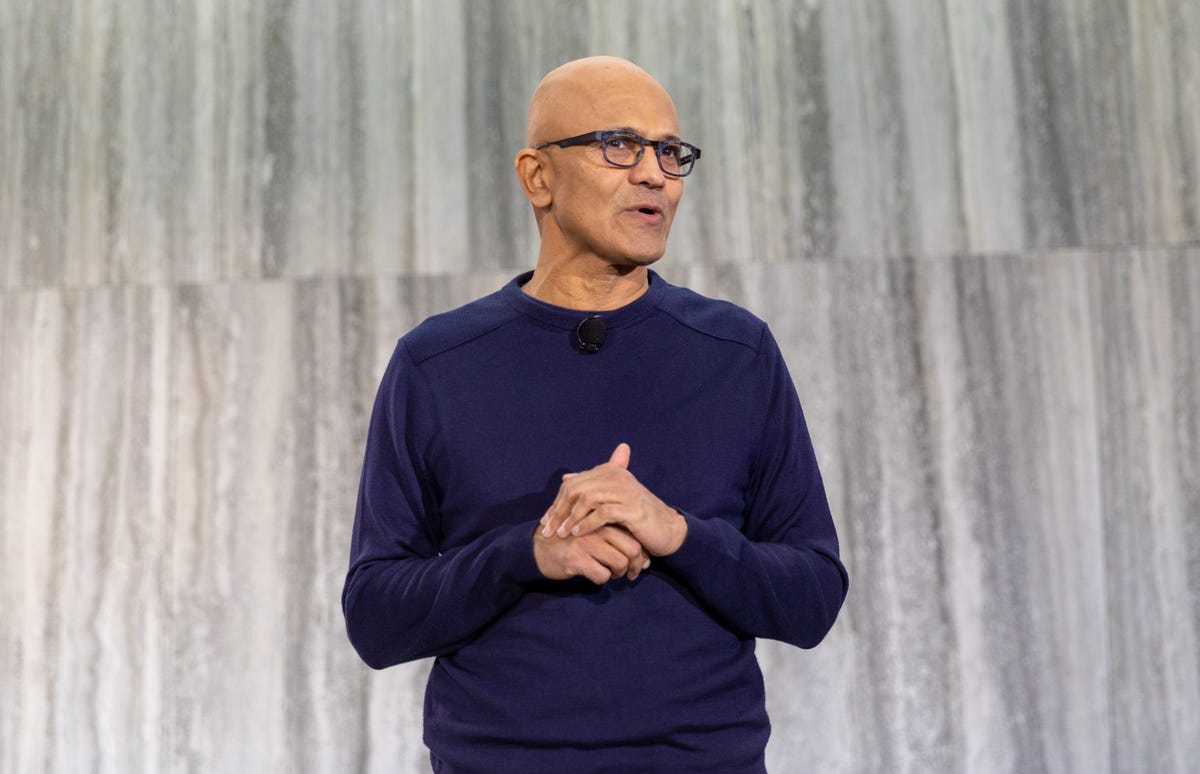Microsoft’s AI-Powered Bing Will Challenge Google Search – CNET [CNET]
Bing now is an “AI-powered co-pilot for the web,” the tech giant said, delivering search results infused with information from the large language model from Microsoft partner OpenAI. Bing also gets a new chat window that Microsoft said will help deliver shopping lists and advice, travel advice and trivia games. The technology also is built into Microsoft’s Edge browser, able to perform tasks like summarizing PDFs and generating LinkedIn posts.
“All computer interaction is going to be mediated with an agent helping,” Chief Executive Satya Nadella said at a launch event at the company’s headquarters in Redmond, Washington. “We’re going to have this notion of a co-pilot that’s going to be there across every application.”
You can try a preview version of the new “AI powered co-pilot” technology with a limited number of queries at bing.com/new and sign up to get on a waiting list for broader release. In coming weeks, Microsoft plans to offer it to millions of people and add a mobile version.
The technology is a major new development for the search business, which hasn’t changed much over the years. Google has worked to blend more answers into its results, but that pales in comparison to what new AI technology can offer. Chat technology based on large language models — the AI systems trained on huge swaths of text on the internet — offers vastly more complex answers and information.
“Microsoft does have a window now to be a bigger player in the consumer tech space, starting with its chatbot assistant embedded with Bing,” Gartner analyst Jason Wong said.
Google, king of the search engine business, tried to upstage Microsoft by revealing its own AI chatbot, Bard, on Monday. Google invented the “transformer” AI technology key to these large language models, and it’s a serious contender. For one thing, Google, not Bing, is the go-to site for people searching for information today.

But Microsoft appears to be ahead in building the technology directly into its products. And when Bing incorporated the AI information into its search results, “We saw the largest jump in relevance in two decades,” said Yusuf Mehdi, chief consumer marketing officer at Microsoft.
Microsoft will show ads next to the new AI search results, Mehdi said.
As of January, Bing had a 3% share of search engine usage, compared to Google’s 92%, according to analytics firm StatCounter. Search is Google’s top revenue source, since the company places ads next to search results.
Microsoft tries to avoid AI pitfalls
Microsoft is trying to avoid some big potential AI problems. It bills its AI answers as suggestions and starting points, not the final word — thus the term “co-pilot,” not pilot.
For example, When you want to use Microsoft’s new AI tools for a creativity boost, you should treat the AI text as a draft, not the final words you’ll post. The technology uses its own Bing technology to try to find useful and authoritative information sources and to scrub out bad data, including low-value text generated by AIs.
And Bing in some situations shows its sources, for example articles with product recommendations, for better transparency. In comparison, it’s anybody’s guess where ChatGPT gets its advice and answers.
And if you don’t like the results, the Bing interface offers a thumbs down button where you can complain next to a thumbs up button for praise.
Editors’ note: CNET is using an AI engine to create some personal finance explainers that are edited and fact-checked by our editors. For more, see this post.

![microsoft’s-ai-powered-bing-will-challenge-google-search-–-cnet-[cnet]](https://i0.wp.com/upmytech.com/wp-content/uploads/2023/02/108923-microsofts-ai-powered-bing-will-challenge-google-search-cnet-cnet.jpg?resize=800%2C445&ssl=1)
![best-gaming-keyboard-for-2021-–-cnet-[cnet]](https://i0.wp.com/upmytech.com/wp-content/uploads/2021/08/37112-best-gaming-keyboard-for-2021-cnet-cnet.jpg?resize=390%2C205&ssl=1)
![mortgage-refinance-rates-on-nov.-21,-2022:-rate-falls-–-cnet-[cnet]](https://i0.wp.com/upmytech.com/wp-content/uploads/2022/11/97421-mortgage-refinance-rates-on-nov-21-2022-rate-falls-cnet-cnet.jpg?resize=390%2C205&ssl=1)
![20-holiday-packaging-ideas-[readwrite]](https://i0.wp.com/upmytech.com/wp-content/uploads/2022/12/101786-20-holiday-packaging-ideas-readwrite.jpg?resize=390%2C205&ssl=1)